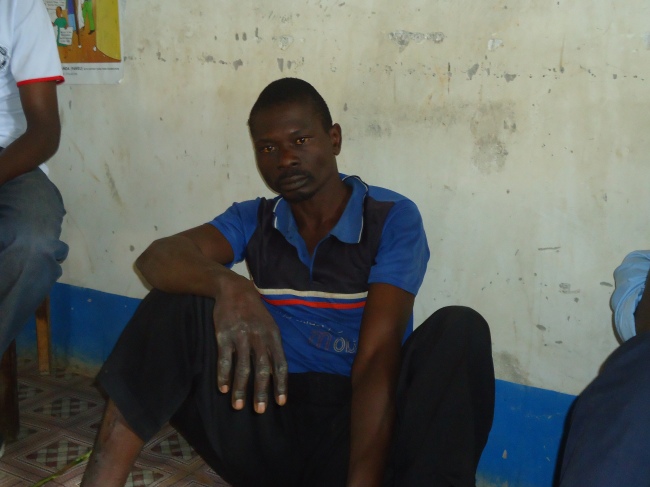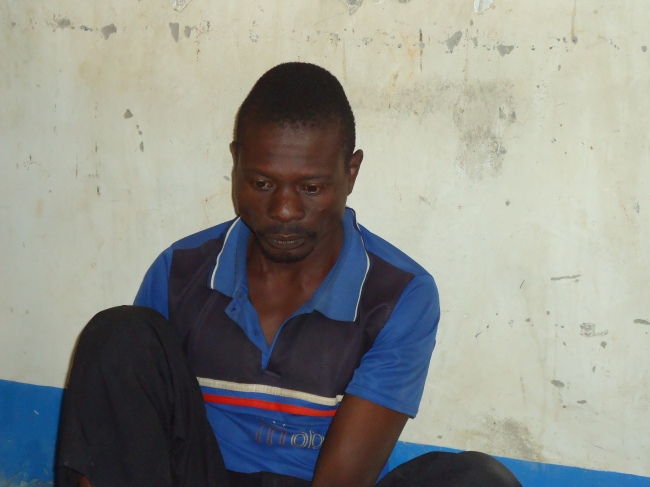Normal
0
false
false
false
MicrosoftInternetExplorer4
st1\:*{behavior:url(#ieooui) }
/* Style Definitions */
table.MsoNormalTable
{mso-style-name:”Table Normal”;
mso-tstyle-rowband-size:0;
mso-tstyle-colband-size:0;
mso-style-noshow:yes;
mso-style-parent:””;
mso-padding-alt:0in 5.4pt 0in 5.4pt;
mso-para-margin:0in;
mso-para-margin-bottom:.0001pt;
mso-pagination:widow-orphan;
font-size:10.0pt;
font-family:”Times New Roman”;
mso-ansi-language:#0400;
mso-fareast-language:#0400;
mso-bidi-language:#0400;}

By Emmanuel Okwii
What began as a rumour turned out to be a chilling revelation of a tragedy that horrified all the residents of Ocanga Village in Lwala Sub County in Kaberamaido district. The residents woke up to the horrifying news on Friday morning that one of their own, Mr Ekweru David had slaughtered his wife identified as Anyango Agnes and later on hanged himself.
It is alleged that David Ekweru, a peasant and a trader at Lwala trading centre on Thursday afternoon last week went for a lunch time devotion in which the diviner at his local church told him that some one had planted a charm on his compound and was intending to harm him, a revelation residents say disturbed him and slowly impacted on his behaviour.
“When he came back from church, he told us that the pastor at the church had told him that someone wanted to take his life and that the person was in his compound. He then started behaving strangely,” Aelo Sandra, one of his daughters said. She adds that later in the evening on the same day, the late invited members of the charismatic wing of his church to come and pray for him. However, the group couldn’t come because it was getting dark.
Mr Richard Ocen, the Ocanga village chairperson said that the matter was reported to him at about 10PM on Thursday evening and he at first couldn’t believe until he went to the scene and saw the dead bodies of the victims of the tragedy.
“The man’s mother knocked at my door and told me that the late had slaughtered his wife. Because I couldn’t believe, I took it upon myself to go and find out and we confirmed it as true,” Mr Ocen said. He adds that the victim first slaughtered his wife, fled and came back and hanged himself in the same house using a rope he picked from a sheep’s neck. Ocen also said that the matter was reported to police on account of its gravity and social implications.
“We reported the case to police because we knew that it would turn bloody if the girl’s relatives came and attacked in vengeance. However, we appreciate the fact that the police did their part in calming a possible violence that indeed ensued the next morning,” Ocen went on.
On Friday morning, the relatives and parents of the slain woman armed with machetes and spears came and demanded that the bride price be fully paid before any burial arrangements could be made since the slain woman had never been married and no bride price had been paid. The boy’s family allegedly mobilized and a total number of 11 cows which were realized were handed over to the woman’s family.
“Through my mediation, seven bulls and four cows were paid to the relatives of the woman. An agreement that bound the relatives of the man to a further shs500000 was made and a promise made to that effect,” Ocen explained.
Cultism, tragedy or crime?
According to the Lwala Parish LC2 Chairperson, the tragedy is attributed to the mushrooming cultish denominations that boast of diviners able to predict people’s futures and things holding the economic and social progress of individuals.
“Although I have recorded more than six murders in which the victims are strangled and stabbed in the month of July alone, I need to say that the church played a big role in this case,” Mr Abdallah Elyanu, the Lwala parish LC2 chairperson said. He adds that had it not been for the divination the deceased received from the local church, he wouldn’t have had such mental disturbances leading to suicide and the gruesome murder of his wife. “He was made to believe that his wife was his enemy and it affected him,” he went on.
The Lwala Police OC CID, Mr Opio Sam Etimu ignored the cult allegations though he said that investigations into the matter were still ongoing.
“This is a case of domestic violence and we advise all people in Kaberamaido district to seek peaceful solutions to wrangles instead of violence,” Mr. Opio said. “Small children have been rendered orphans prematurely because of this tragedy. Who will take care of them,” he added.
The Eastern Region Police Spokesperson, Mr. Juma Nyene said that this was the fourth case of domestic violence involving murder in Teso in the month of July alone.
“We are still investigating whether anyone assisted him in the crime before hanging himself. In the month of July alone, we have registered four cases of domestic violence leading to death and this can raise anyone’s eyebrows. We appeal to residents to desist from violence and seek peaceful means to disagreements,” Mr Nyene said. He adds that the linkage between the church and the tragedy had not been ruled out but was still under investigation.
The family is survived by five children; Sandra Aelo 17, Stella Amwako 16, Henry Elugu 14, Asero Monica 11 and Michael Ekweru, 13 Months.



